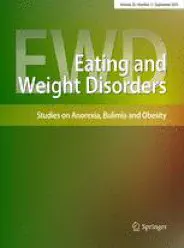The relationship between body weight and dietary restraint is explained by body dissatisfaction and body image inflexibility among young adults in China

Abstract
Objective: Eating disorders and obesity are commonly recognized as key public health concerns worldwide. Although rates of obesity and disordered eating have traditionally been lower in China than Western countries, these rates are on the rise. As such, interest is growing in identifying mechanisms that may address these conditions. While associations between body weight and dissatisfaction are well established, burgeoning research aims to examine how these factors are related to dietary restraint and body image inflexibility. This study aimed to explore the possible mediation effect of body dissatisfaction and body image inflexibility between body weight (body mass index) and dietary restraint. Furthermore, we explored how these relationships differed across men and women.
Methods: A sample of 1068 young adults (563 females and 505 males) in China participated in the study. Participants completed the Eating Disorder Inventory and Three-Factor Eating Questionnaire as well as the Body Image-Acceptance and Action Questionnaire.
Results: Results showed that: (1) body dissatisfaction and body image inflexibility fully mediated the relationship between body mass index and dietary restraint; (2) this model fit both genders, although differences were found in the regression coefficients between the mediation model for men and women.
Conclusion: These findings support body image dissatisfaction and inflexibility as mediators of the relationship between body weight and dietary restraint, highlighting these as potential mechanisms for treatment.